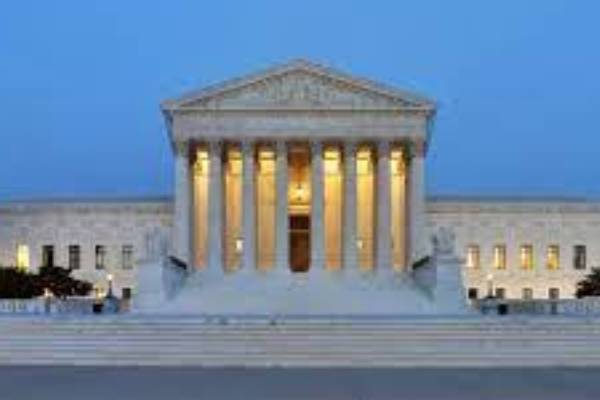The US Supreme Court has overturned Roe v Wade, the landmark ruling that granted the right to abortion for nearly five decades in the United States.
In the decision on Friday, the country’s top court ruled in a Mississippi case that “The Constitution does not confer a right to abortion.” The justices voted 6-3, powered by the court’s conservative supermajority.
The ruling follows a leak of a draft opinion indicating that Roe v Wade would be overturned. That sparked widespread protests and condemnation across the US, with reproductive rights advocates saying millions of women will no longer have access to abortion services.
More than two dozen US states are likely to ban abortion now that the 1973 legal precedent has been overturned, according to reproductive rights group Guttmacher Institute, a move that rights groups say disproportionately harms low-income women and communities of colour.
Anti-abortion advocates celebrate outside the Supreme Court after justices ended constitutional protections for abortion that had been in place nearly 50 years. Steve Helber/The Associated Press]
In the ruling, the justices held that the 1973 Roe v Wade decision that legalised abortions performed before a fetus would be viable outside the womb – between 24 and 28 weeks of pregnancy – was wrongly decided because the US Constitution makes no specific mention of abortion rights.
The Roe v Wade ruling had argued that the right to personal privacy under the US Constitution protects a woman’s ability to terminate her pregnancy.
The Supreme Court in a 1992 ruling called Planned Parenthood of Southeastern Pennsylvania v Casey reaffirmed abortion rights and prohibited laws imposing an “undue burden” on abortion access.
Conservative Justice Samuel Alito, in the final opinion issued Friday, wrote that Roe and Planned Parenthood v Casey were wrong the day they were decided and must be overturned.
“We hold that Roe and Casey must be overruled. The Constitution makes no reference to abortion, and no such right is implicitly protected by any constitutional provision,” Alito wrote.
Justices Clarence Thomas, Neil Gorsuch, Brett Kavanaugh and Amy Coney Barrett also voted to overturn Roe. The latter three justices are Trump appointees.
Meanwhile, chief Justice John Roberts would have stopped short of ending the abortion right, noting in the ruling that he would have upheld the Mississippi law at the heart of the case, a ban on abortion after 15 weeks, and said no more.
Liberal justices justices Stephen Breyer, Sonia Sotomayor and Elena Kagan were in dissent.
“With sorrow – for this Court, but more, for the many millions of American women who have today lost a fundamental constitutional protection—we dissent,” they wrote.
Opinion polls show a majority of Americans support abortion rights. But overturning Roe has been a goal of anti-abortion activists and Christian conservatives for decades, with annual marches in Washington including in January of this year.





